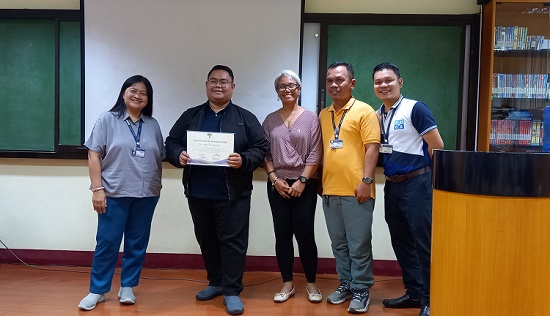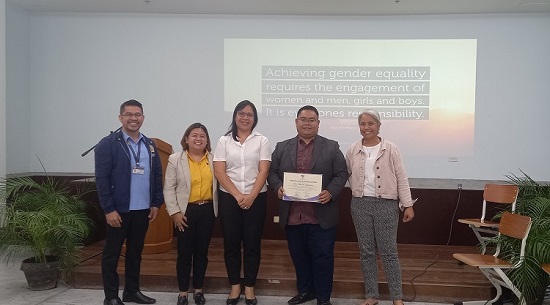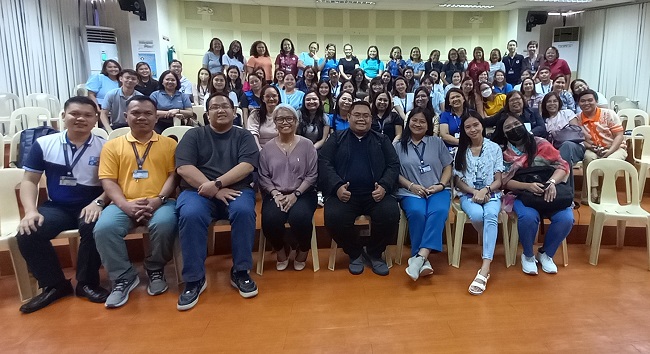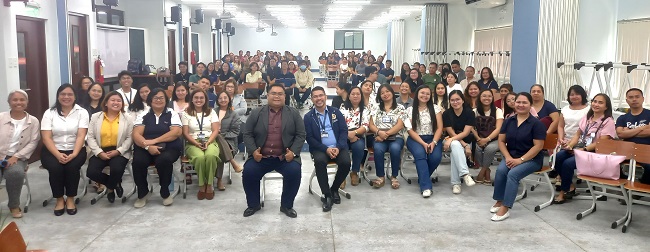In its commitment to establishing an inclusive and gender-sensitive community, the Xavier University Basic Education Cluster, through the Xavier University Gender and Development (XAGaD) office, conducted orientations on the Department of Education Order No 32, series of 2017 titled Gender-Responsive Basic Education Policy on 8 and 12 July 2024, with faculty members from the Senior High School, Junior High School, and Grade School at the Pueblo Campus. The orientations were an opportunity to understand the roles and responsibilities of the Basic Education cluster members regarding gender responsiveness and to foster an environment that recognizes and respects the human rights of all individuals, irrespective of their sex.

"The policy seeks to enable the Department of Education to undertake gender mainstreaming to address both enduring and emerging gender and sexuality-related issues in basic education, to promote the protection of children from all forms of gender-related violence, abuse, exploitation, discrimination, and bullying, and to promote gender equality and non-discrimination in the workplace and within the Department of Education."
The policy emphasized the commitment of the Department of Education to integrate the principles of gender equality, gender equity, gender sensitivity, non-discrimination, and human rights in the provision and governance of Basic Education. The policy covers school officials, employees, and public and private elementary, junior, and senior high school learners.

Dr Pamela Q Pajente, the Vice President for Basic Education; Rogelio L Gawahan, the Principal of the Senior High School; Ms Lea Lilibeth B Emata, the Principal of the Junior High School; and Ms Alma M Madrial, the Principal of the Grade School, led the participation of 241 teachers from the Basic Education cluster in the activity.
The scope and policies of gender and development should be familiar to all educators, particularly those working in Basic Education, according to Dr Pajente, who emphasized that "the Philippine Commission on Women defined gender and development as a perspective and process that is participatory and empowering, equitable, sustainable, free from violence, respectful of human rights, supportive of self-determination, and actualization of human potentials." An alternative to the Women in Development (WID) concept was gender and development, which emerged in the 1980s. Unlike WID, the GAD approach is concerned not only with women but with the assigning of roles, responsibilities, and expectations to men and women in society. Republic Act No 9710, otherwise known as the Magna Carta of Women, mandates non-discriminatory and pro-gender equality and equity measures to enable women’s participation in the formulation, implementation, and evaluation of policies and plans for national, regional, and local development.

Dr Roy H Lumban, the division GAD coordinator of the Department of Education, spoke about the provisions, including its scope and policy statement. He also discussed the four elements of the gender-responsive basic education policy: mainstreaming gender in all policies and programs, projects, and activities (PPAs), ensuring gender parity in staffing, creating an enabling work environment, and strengthening gender and development institutional mechanisms. He also facilitated workshops and interactive sessions on the challenges in the classroom or school setting about gender-responsive Basic Education and possible solutions.
Mr Jannrel John D Camaro, a participant, shared that they need to work on their red flags to be more sensitive and to make the classroom safe for the learners. He is glad that XAGaD is working to eliminate gender biases so they can actively perform their roles in the development process and ensure that empowerment and full participation become essential for society. He remembered what Fr Frank B Savadera, SJ, told him during their Ignatian Spirituality Education Workshop (ISEW) that he has to embrace his true self. He will be able to empower himself and realize his potential. An empowered person can be a gift and serve God and the people around him.

Dr Lumban closed his sessions with a quote from Ban Ki-Moon, former Secretary General of the United Nations,"Achieving gender equality requires the engagement of women and men, girls and boys. It's everyone'sresponsibility."